Are you considering getting an all white bunny as a pet? If so, then this article is for you! Here, we’ll cover everything you need to know about all white bunnies, from their diet to their behavior. We’ll also provide some tips on how to care for your all white bunny and give a few fun facts about these beautiful creatures. So, let’s get started and learn all about all white bunnies!
Anatomy of a Small White Rabbit
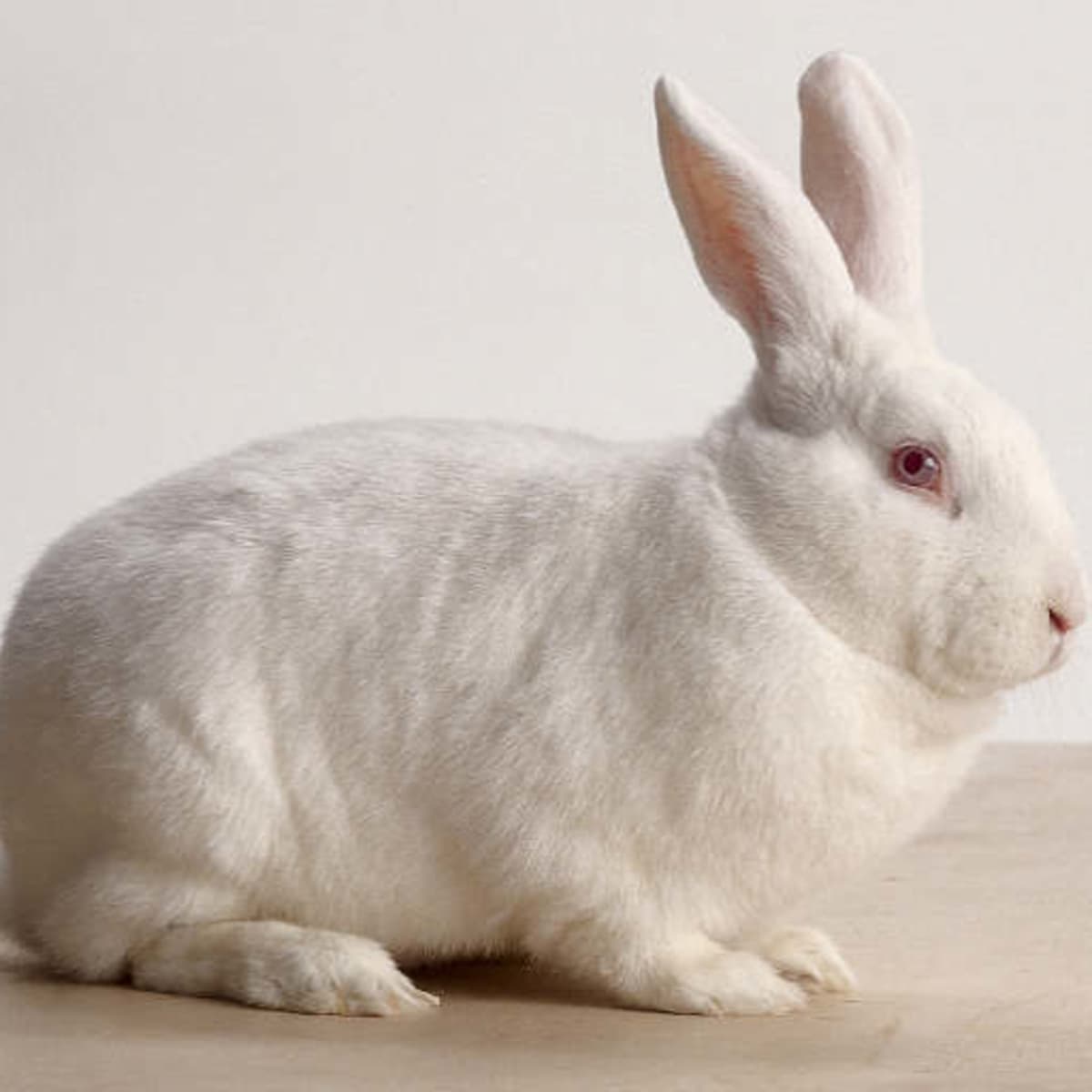
Physical Characteristics
Small white bunnies are typically small-to-medium in size, depending on their breed. They have short ears and a short, fluffy coat of white fur. They have long, powerful hind legs used for hopping and running, and sharp claws for digging. Their eyes are usually bright and alert, and their noses moist and black.
Behavior
Small white bunnies are active and social animals, but can also be timid and shy. They are naturally curious, and like to explore their environment. They can be litter trained, and if handled frequently they can become very affectionate. They communicate with a variety of noises including purring, squeaking and thumping their feet. They are also very social and enjoy the company of other rabbits.
Diet of Small White Bunnies
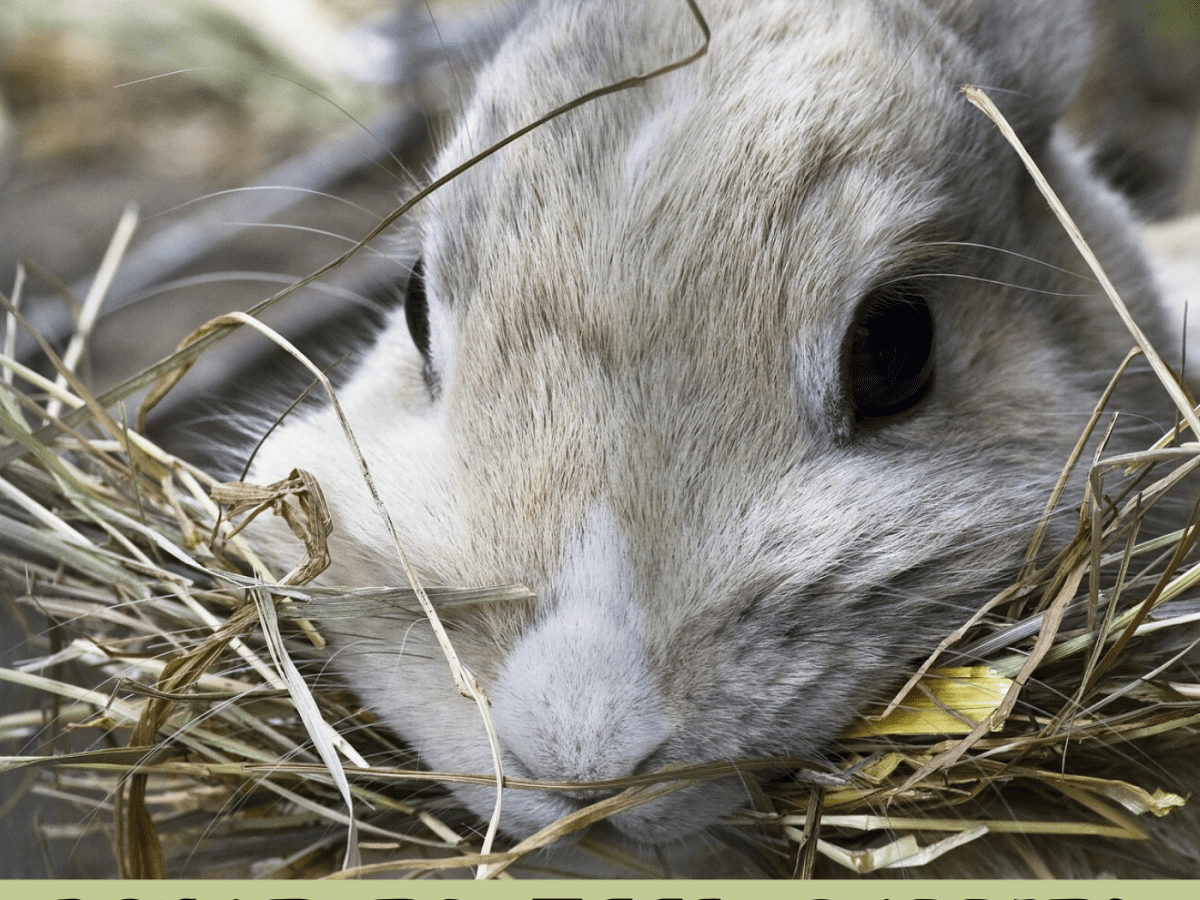
Wild Diet
Small white bunnies in the wild typically consume a variety of plants and grasses, such as clover, grass, alfalfa, and dandelion. These types of plants are rich in nutrients and provide all the necessary vitamins and minerals a bunny needs. Additionally, small white bunnies in the wild may also consume small amounts of insects, such as caterpillars and beetles, for extra protein.
Domestic Diet
All white bunnies kept as pets should be given a diet that closely resembles their wild counterparts. This means providing them with hay, such as Timothy hay, and a variety of fresh vegetables. Vegetables such as carrots, kale, and broccoli provide essential vitamins and minerals for a healthy bunny diet. In addition, small amounts of commercial rabbit pellets can be given to ensure a balanced diet is maintained.
Habitat of All White Bunnies
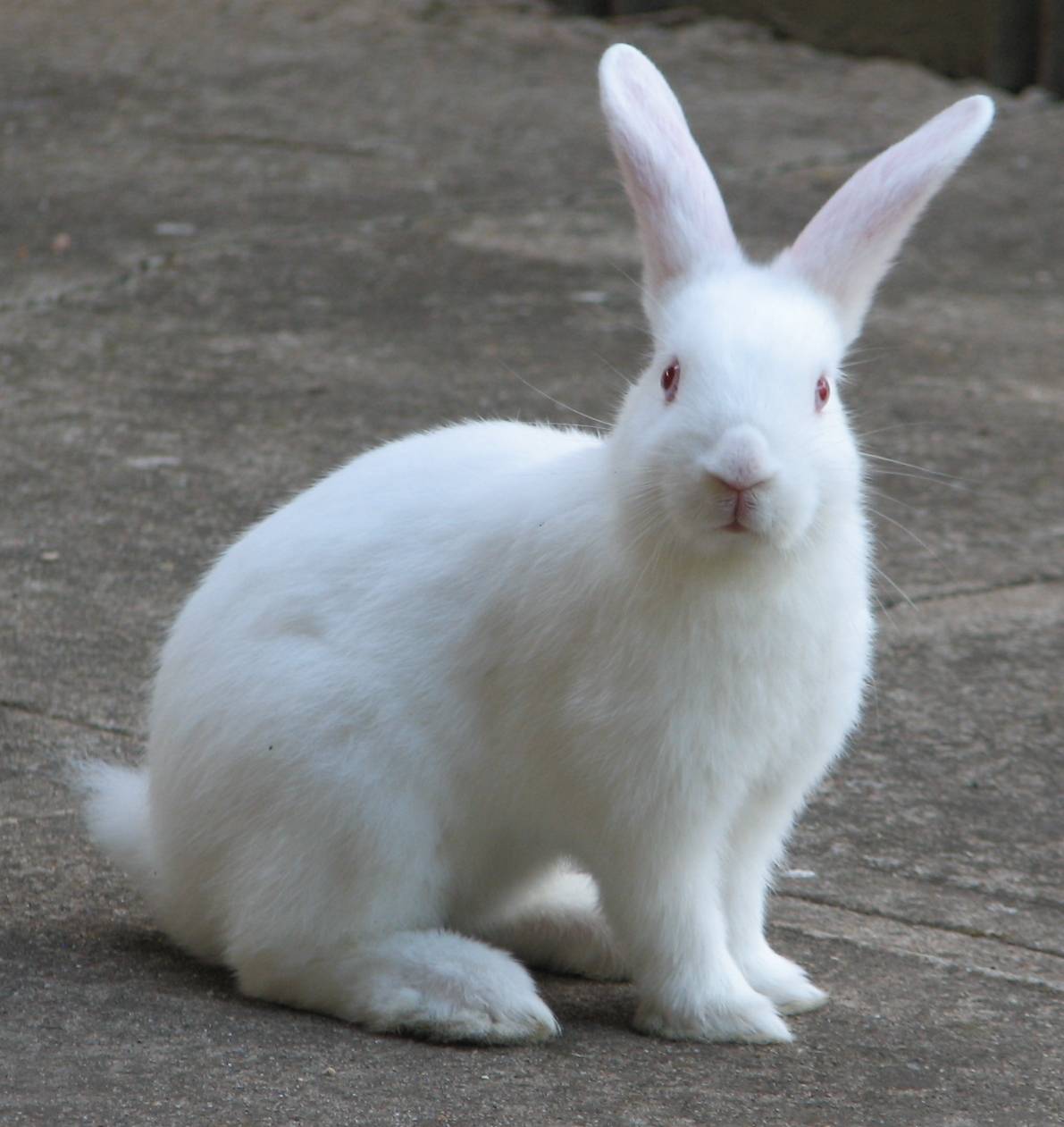
All white bunnies are usually found in meadows, grasslands, and other open areas with abundant vegetation. They tend to prefer areas with a mild climate, and they can often be found in areas with some shade.
Habitat Requirements:
| Habitat | Features |
|---|---|
| Meadows | Plenty of grasses and other vegetation |
| Grasslands | Abundant vegetation, especially grasses |
| Open Areas | Plenty of space to move around in |
| Mild Climate | Not too cold or too hot |
| Shaded Areas | Provides protection from the sun |
All white bunnies are also known to inhabit woodlands and forests, as well as other areas with plenty of cover. They are social animals and are often found in groups of up to ten or more individuals.
Breeding of Small White Bunnies
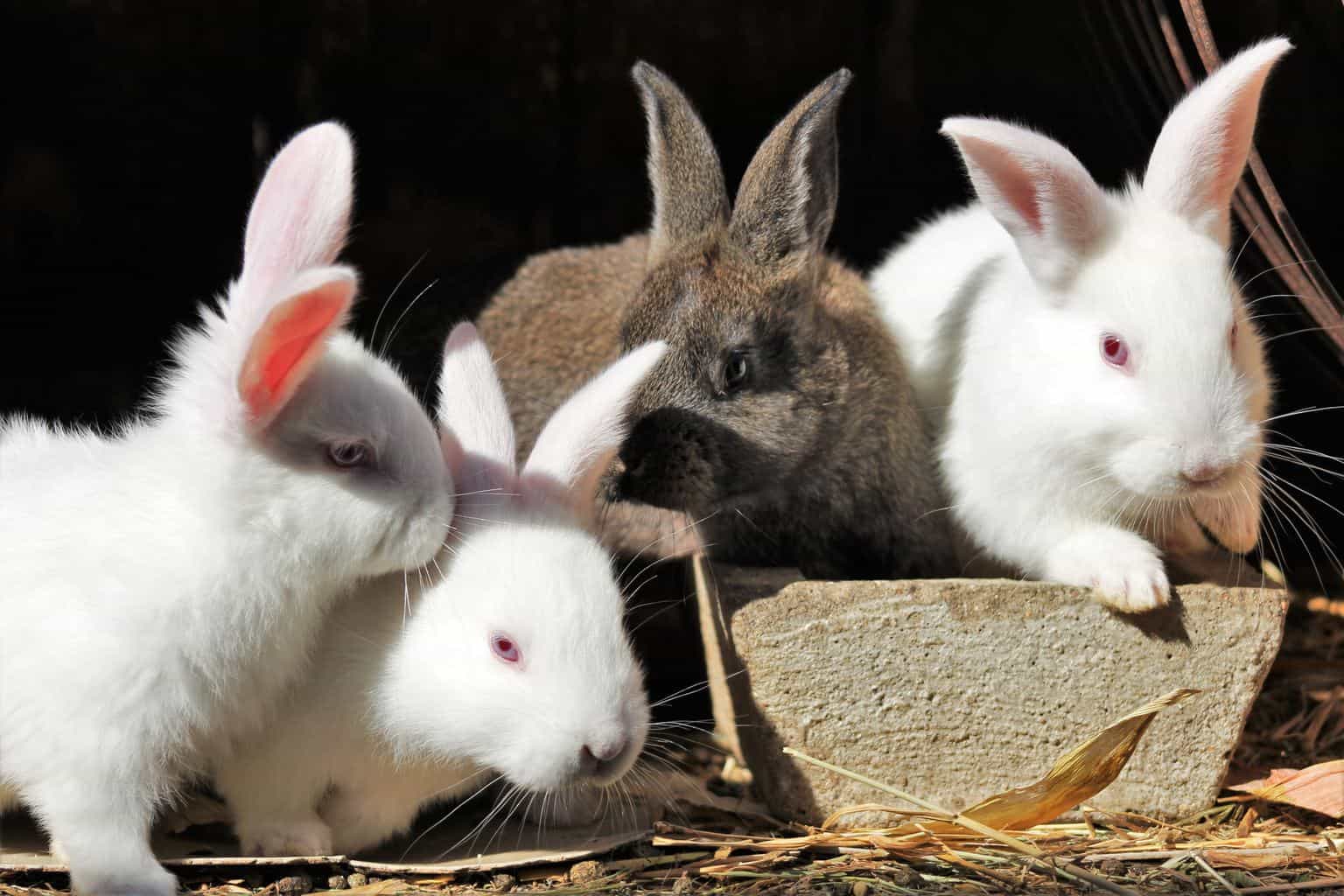
Breeding Habits
Small white bunnies are able to reproduce when they reach the age of approximately four months. Female rabbits are able to produce several litters of kits in a year. Breeding should be done in a controlled environment, as the females can become pregnant again within hours of giving birth.
Common Health Issues
Small white bunnies can be prone to certain health problems. Obesity and overgrown teeth are two of the most common issues that owners need to be aware of. Obese bunnies may require a special diet and regular exercise, while overgrown teeth may need to be clipped or ground down. Other common conditions include ear mites and snuffles. It is important to monitor your bunny’s health and seek veterinary advice if any symptoms are present.
Care of All White Bunnies
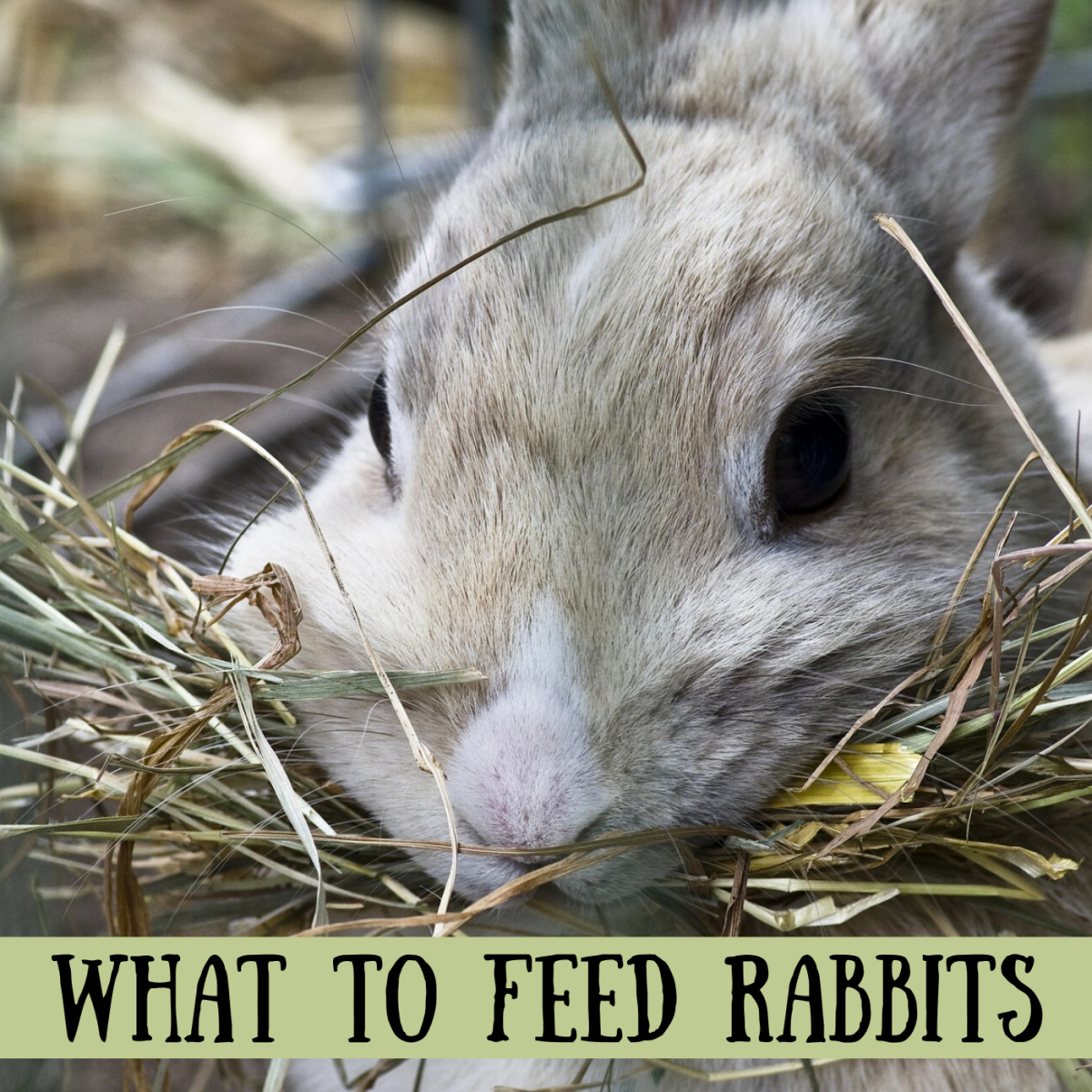
Housing
- Provide a large, safe hutch for your bunny.
- Line the hutch with hay or straw.
- Ensure the hutch is kept clean and dry.
- Provide plenty of space inside the hutch.
Feeding
- Feed your bunny high-quality hay.
- Provide fresh vegetables, such as carrots and celery.
- Offer fresh fruits as occasional treats.
- Purchase a commercial rabbit food mix.
Exercise
- Provide a large, secure space for your bunny to run and play.
- Allow your bunny to explore the area.
- Provide toys, such as balls and chew toys.
- Supervise your bunny’s playtime to ensure safety.
Grooming
- Brush your bunny’s fur on a regular basis.
- Check for fleas and ticks.
- Trim your bunny’s nails.
- Clean your bunny’s ears regularly.
Health
- Monitor your bunny’s health on a regular basis.
- Watch for signs of illness, such as unusual behavior.
- Take your bunny to the veterinarian for regular check-ups.
- Provide a special diet if your bunny has dietary needs.
Popularity of Small White Rabbits
Small white rabbits have become increasingly popular as pets in recent years. They are renowned for their cute appearance, gentle and friendly nature, and ability to bond with their owners. Here are some of the reasons why small white rabbits are so popular:
- Small white rabbits have a lovely white coat that stands out and looks great in photos.
- They are outgoing and social, making them great companions.
- They are easy to care for and require minimal grooming.
- They are small in size, so they are well-suited for smaller homes and apartments.
- They are generally calm and docile, making them perfect for children and families.
These qualities make small white rabbits a great choice for those looking for a pet that is gentle, friendly, and easy to care for. With their unique appearance and wonderful nature, it is easy to see why small white rabbits have become so popular.
Frequently Asked Questions
What are the Best Diets for White Bunny Rabbits?
White bunny rabbits should be fed a diet rich in hay, fresh vegetables and a small amount of high-quality commercial rabbit food. They also need fresh, clean water available at all times. Treats such as boiled eggs, fruits, and vegetables can also be given in small amounts. It is important to provide a healthy and balanced diet to maintain the rabbit’s health and well-being.
What Health Problems are Common in White Bunny Rabbits?
White bunny rabbits are prone to the same health issues as other rabbits, such as dental problems, gastrointestinal stasis, and respiratory infections. In addition, white bunny rabbits may be more susceptible to certain skin issues, such as sunburn or heat stroke, due to their lighter fur. It is important to take extra care of their fur and provide them with plenty of shade and water. Furthermore, white bunny rabbits should be monitored for any signs of infection, as they can be more susceptible to certain illnesses.
How can I tell if my white bunny rabbit is happy and healthy?
To tell if your white bunny is healthy and happy, look for signs such as a shiny coat, bright eyes, and a curious, active attitude. Your rabbit should have a good appetite and be willing to accept treats. It should also be litter-trained and have regular bowel movements. Additionally, regular checkups with a vet are important to ensure your rabbit is in good health.
How Much Exercise Do White Bunny Rabbits Need?
- Playtime: White bunny rabbits need plenty of playtime outdoors to stay healthy and happy. They should have at least an hour a day of supervised playtime, where they can hop around and explore their environment.
- Running: White bunny rabbits need to run and hop around to stay physically fit. Providing them with a large, enclosed area where they can safely exercise will help keep them active and healthy.
- Climbing: White bunny rabbits also love to climb, so providing them with ramps and other items that encourage them to jump and climb is important. This will help keep their muscles toned and their minds active.
- Hide and Seek: White bunny rabbits enjoy playing hide and seek. Providing them with hiding places, such as tunnels and boxes, will help keep them entertained and active.
- Toys: White bunny rabbits like to play with toys, too. Don’t forget to provide them with plenty of toys to keep them occupied and active.
White bunny rabbits need plenty of physical activity to stay healthy and happy. Providing them with supervised playtime, running, climbing, hide and seek, and toys will help keep them physically fit and mentally engaged.
What Type of Housing is Best for White Bunny Rabbits?
White bunnies need a secure and comfortable environment with plenty of space to explore and play. A hutch is perfect for indoor and outdoor rabbits, providing protection from the elements and predators. The hutch should be large enough for them to move about freely and have access to a litter box, hay, water, and food. If the hutch is kept indoors, the temperature should be regulated and the space should be well-ventilated. If kept outdoors, the hutch should be placed in a shaded area to protect them from extreme temperatures.
Conclusion
All white bunnies are a unique and beautiful breed of rabbit. They have a few distinct characteristics that make them stand out from other breeds. They are gentle, intelligent, and loyal companions, and they require minimal grooming. They are a great choice for those who want a pet rabbit that will bring a lot of joy to their lives.
